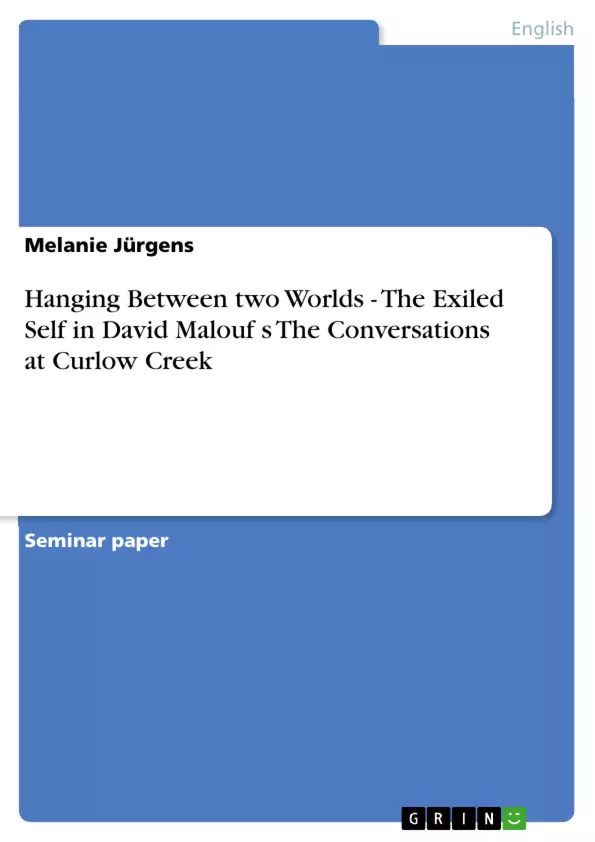[...]The main focus of the following paper will lie on the mental consequences of being in exile, mainly portrayed in the protagonist - or main consciousness- Michael Adair. Furthermore I will propose to consider the notions of estrangement that can be found in Adair as well as in Carney, the differences between life in their home country Ireland and their new (temporary) home Australia from the colonial point of view.
Inhaltsverzeichnis (Table of Contents)
- Introduction
- Literary adaptation of an old legend
- Immigration to "Paradise found or lost?"
- Defining home
- The juxtaposition of Ireland and Australia
- Mental journey into the past
- Strange encounters
- Dichotomies as a means of amplification
- Arriving at a new self
- Conclusion
- Bibliography
- Primary literature
- Secondary literature
Zielsetzung und Themenschwerpunkte (Objectives and Key Themes)
This paper aims to explore the mental consequences of being in exile, specifically as portrayed in the protagonist, Michael Adair, in David Malouf's novel *The Conversations at Curlow Creek*. The paper will also examine the notions of estrangement experienced by both Adair and the convict, Carney, comparing life in their homeland, Ireland, with their new temporary home in Australia, from a colonial perspective.
- The impact of exile on the protagonist's mental state
- The exploration of estrangement and its manifestation in the characters' experiences
- The juxtaposition of Ireland and Australia as contrasting environments
- The adaptation of an old legend into a fictional narrative
- The historical context of Irish immigration to Australia
Zusammenfassung der Kapitel (Chapter Summaries)
The paper begins with an introduction that discusses the novel's title and provides a brief overview of its narrative. It then delves into the historical context of Irish settlement in Australia, highlighting the transportation of convicts and the subsequent wave of emigration in 1827, the year in which the novel is set. The paper explores the themes of "paradise found or lost" by examining the hopes and challenges faced by Irish settlers in their new environment. The paper also examines the protagonist's mental journey back to Ireland, highlighting the significance of his past experiences in shaping his present reality.
Schlüsselwörter (Keywords)
The main keywords and focus topics of the text include: exile, estrangement, Irish immigration, Australian colonial history, adaptation of legends, mental journey, historical context, cultural differences, and *The Conversations at Curlow Creek*.
Frequently Asked Questions
What is the primary theme of "The Conversations at Curlow Creek"?
The novel primarily explores the mental consequences of exile, estrangement, and the search for identity within a colonial Australian setting.
Who is the main protagonist of David Malouf's novel?
The main consciousness of the story is Michael Adair, an officer whose mental journey back to his past in Ireland forms a central part of the narrative.
How are Ireland and Australia contrasted in the text?
The text juxtaposes Ireland, the home country, with Australia, the new (temporary) home, often viewing Australia through a lens of "paradise found or lost."
What historical event is central to the novel's setting?
The novel is set in 1827, a period marked by the transportation of Irish convicts and significant emigration to the Australian colonies.
What role does Carney play in the story?
Carney is a convict whose experiences of estrangement and exile provide a counterpoint to Michael Adair's own mental journey and colonial perspective.
- Citar trabajo
- Melanie Jürgens (Autor), 2002, Hanging Between two Worlds - The Exiled Self in David Malouf s The Conversations at Curlow Creek, Múnich, GRIN Verlag, https://www.grin.com/document/9992



